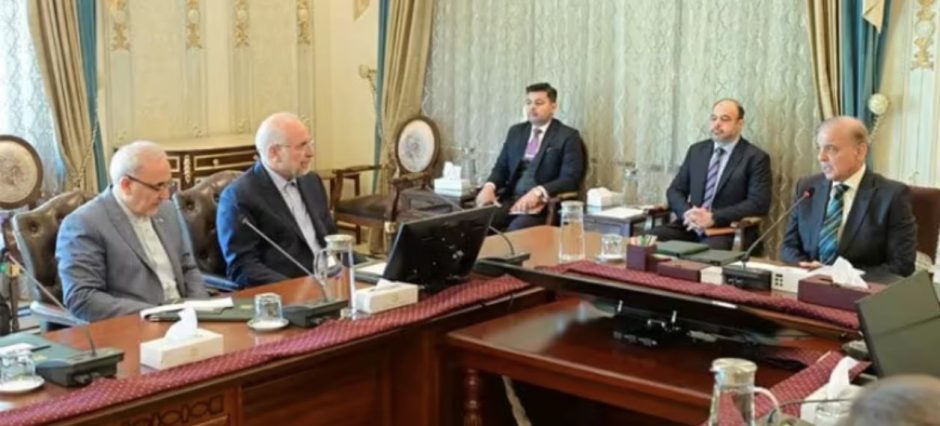Prime Minister Shehbaz Sharif has reaffirmed Pakistan’s commitment to strengthening cooperation with Iran, particularly in trade, energy collaboration, border security, and regional stability. Speaking during high-level discussions, the Prime Minister underscored that both Pakistan and Iran have long been victims of state-sponsored terrorism, and therefore share a mutual responsibility to work together against forces seeking to destabilize the region.
PM Shehbaz emphasized that Pakistan views Iran not just as a neighboring country, but as a partner with whom deep historical, cultural, and religious ties exist. He stated that coordinated strategies and intelligence-sharing mechanisms are crucial to counter the complex network of militant activities operating across regional borders. According to him, external actors have continuously tried to exploit regional conflicts, and only unified diplomatic efforts can prevent such attempts from succeeding.
Economically, the Prime Minister highlighted the potential expansion of bilateral trade, especially in oil, gas, and electricity cooperation. Pakistan is already exploring multiple avenues to enhance cross-border energy supply, which could help address domestic power shortages while deepening economic interdependence between the two countries. He also noted that border markets and trade corridors could significantly improve livelihoods for communities living near the Pakistan-Iran border.
This diplomatic engagement comes at a time when Pakistan has also been actively engaged in discussions with Afghanistan regarding cross-border security concerns. In recent Istanbul negotiations, Pakistan presented evidence-based demands to address the rising threat of terrorism originating from Afghan soil . The government maintains that regional peace is interconnected, and progress on one front directly influences stability on another.
PM Shehbaz reiterated that while Pakistan remains committed to peaceful cooperation, it will not compromise on national security. Strengthening regional unity, according to him, is not just a diplomatic strategy but a necessary step for sustainable development and long-term peace.
The recent engagements are being seen as a reaffirmation of Pakistan’s broader foreign policy direction one that favors dialogue, improved connectivity, and collective action against terrorism rather than isolation or unilateral measures.











